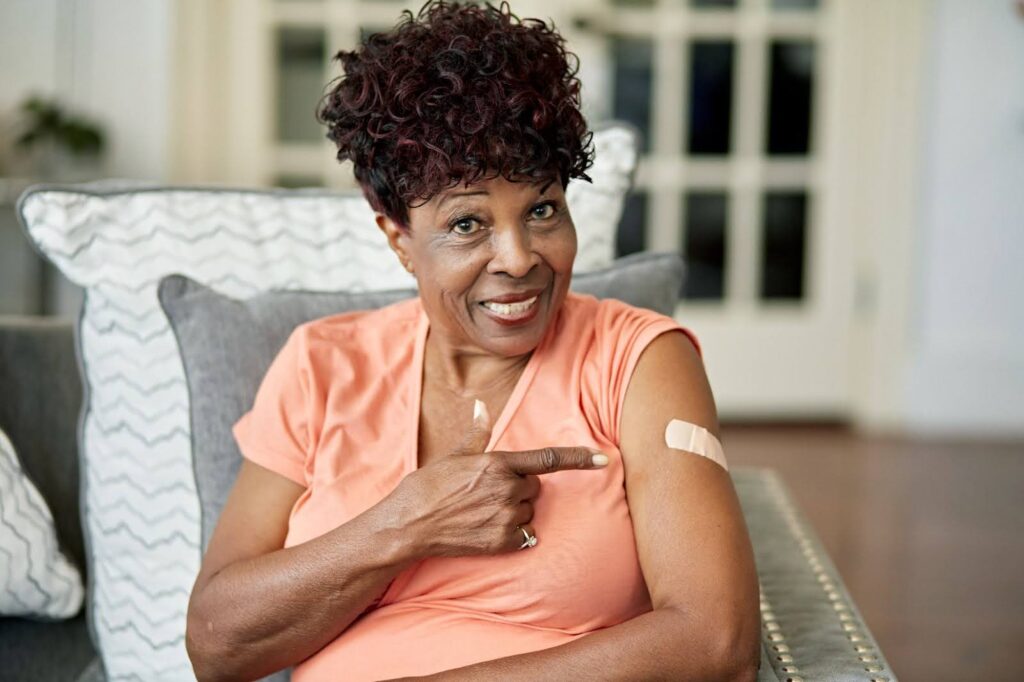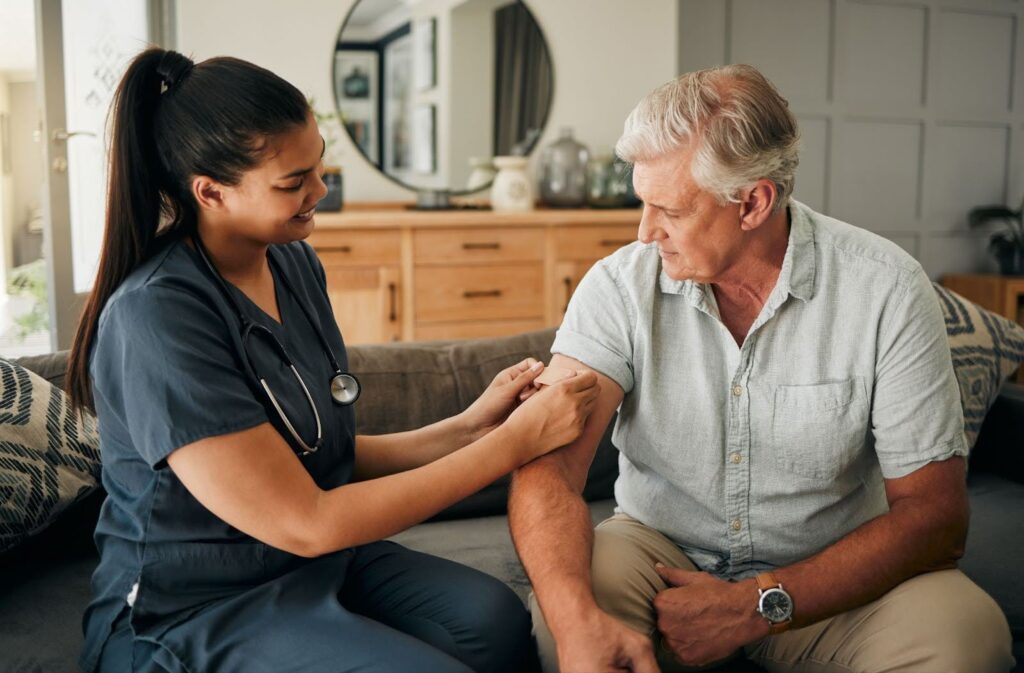Vaccines for Seniors: Everything You Need To Know
Vaccines are usually at the top of mind for a lot of people during the winter months because of flu season. But this isn’t the only time to think about vaccines and how they can help you.
There are other vaccines for seniors that can help prevent a range of illnesses and disease-related deaths. Here’s what you need to know about why vaccines are so important for older adults, and which ones you should talk to your doctor about getting.
Why Do Vaccines for Seniors Matter?
As you get older, your immune system tends to weaken, putting you more at risk for certain diseases. If you have health conditions such as diabetes, heart disease, COPD, or a compromised immune system, your risks are higher for complications and even death.
There are vaccines for older adults that will help you boost your immune system and protect your health. In this blog, we’ll review some statistics about vaccine-preventable diseases, which vaccines older adults need, and take a look at vaccines that can help older adults with common health conditions.
Vaccine-Preventable Diseases Statistics
According to the Centers for Disease Control and Prevention (CDC), thousands of people die each year from vaccine-preventable diseases.
- Since 2010, annual flu-related hospitalizations in the United States have fluctuated between 140,000 and 710,000, with flu-related deaths ranging from 12,000 to 56,000.
- Chronic hepatitis B afflicts approximately 880,000 people, leading to complications such as liver cancer.
- Pneumococcal pneumonia affects about 320,000 individuals each year, resulting in over 150,000 hospitalizations and 5,000 deaths, primarily among older adults.
Not only does getting a vaccine help you stay healthier, but it’s also cost-effective. The economic burden of treating unvaccinated individuals is significant. The estimated annual costs of managing the four major vaccine-preventable diseases in individuals aged 65 and older amount to approximately $26.5 billion.
Now that you know more about common illnesses that vaccines can prevent, you may wonder what vaccines you should get to help you stay healthy. Let’s take a look at vaccines for older adults.

Which Vaccines Should Seniors Get?
The CDC lists these recommended vaccines for those age 65 and older:
- Influenza Vaccine: It’s crucial to get vaccinated yearly to protect yourself and others. The CDC recommends getting vaccinated early in flu season (by the end of October) to allow antibodies to develop fully. For those aged 65 and older, a high-dose vaccine may be more effective due to its higher antigen content, offering a better immune response.
- Shingles Vaccine: Recommended for healthy adults over 50, the shingles vaccine helps prevent the painful rash and potential complications associated with shingles, which affects one million people annually in the U.S.
- Pneumococcal Vaccines: These vaccines protect against infections caused by Streptococcus pneumoniae bacteria, ranging from ear and sinus infections to pneumonia and bloodstream infections. The PPSV23 vaccine is recommended for adults aged 65 and older and those under 65 with certain health conditions. The PCV13 vaccine is advised for adults with weakened immune systems, cerebrospinal fluid leaks, or cochlear implants. Adults aged 65 and older without PCV13 vaccination and certain conditions may discuss vaccination with their health care provider.
- Tdap Vaccine: Protecting against tuberculosis, diphtheria, and whooping cough, the Tdap vaccine is essential. If you’ve never received it, an initial vaccination is necessary. Booster shots every ten years are recommended to maintain immunity, particularly important for those in contact with newborns.
- COVID-19 Vaccines: Given the increased risk for older adults, it’s vital to prioritize vaccination. As soon as you’re eligible, getting vaccinated is crucial for protection against COVID-19 and its potential complications.
Vaccines for Seniors With Health Conditions
While the listed vaccines are important for all older adults, the CDC says people with certain health conditions are at even higher risk for vaccine-preventable diseases. If you have any of these conditions, be sure to talk to your health care provider about getting your immunizations up to date as soon as possible.
Diabetes
Both Type 1 and Type 2 put you at risk for serious complications from illnesses. These vaccines can help protect you from those illnesses:
- Influenza
- Pneumonia
- Tdap
- Shingles
- Hepatitis B (to protect your liver)
Heart Disease
Heart disease can make it harder to fight infections and raises your risk of complications. If you have heart disease, you may want to speak with your doctor about these vaccinations:
- Influenza
- Pneumonia
- Tdap
- Shingles
Lung Disease
Both lung disease and asthma make it more likely you’ll have complications from the flu.
Some other vaccine-preventable diseases can increase the swelling of the lungs and airways, which can lead to pneumonia and other serious complications. Vaccinations that can help prevent these complications include:
- Influenza
- Pneumonia
- Tdap
- Shingles
Talk to your health care provider about protecting your health with the appropriate vaccinations. Your health matters.

Live Safely at Brandon Wilde
The Brandon Wilde community takes careful steps to ensure our residents can lead safe and healthy lives. You can learn more about our health and safety precautions here, or call us today at 706-530-5230 to learn more about our health services.

